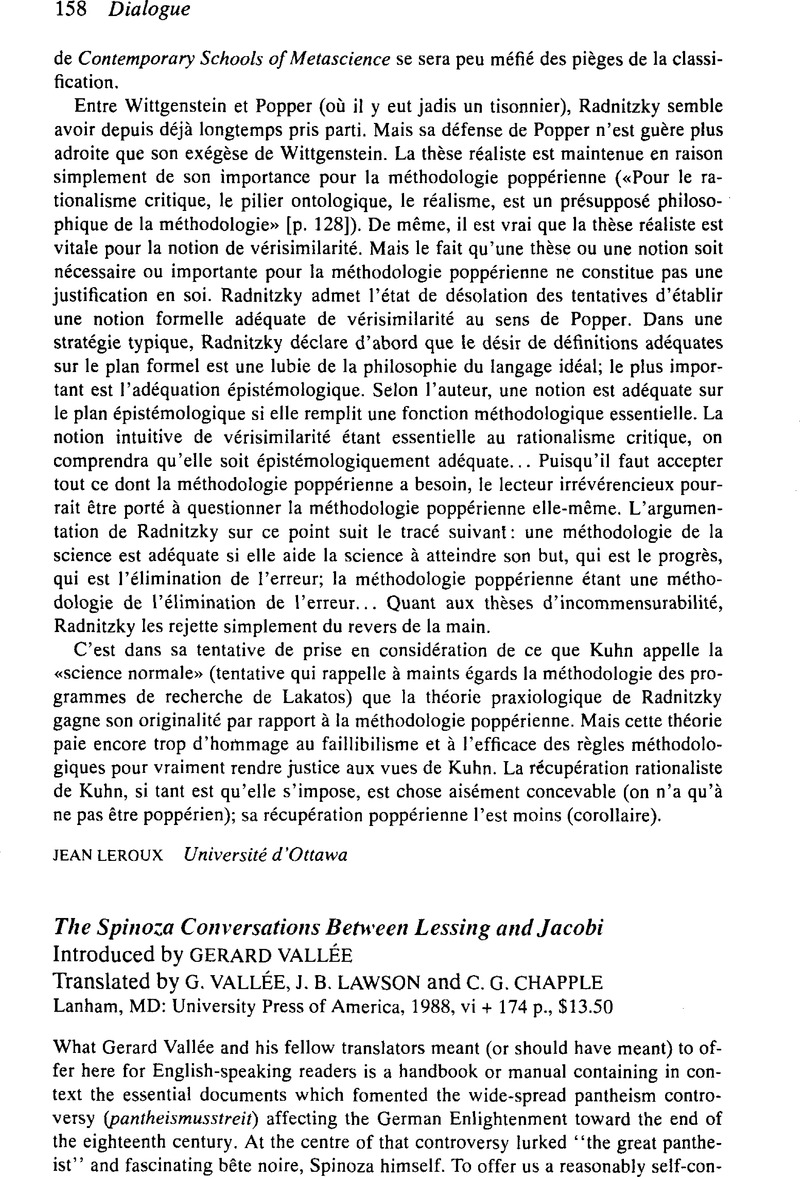No CrossRef data available.
Published online by Cambridge University Press: 13 April 2010

1 Vallée, in his Foreword: “For my area of interest is defined by the question of Lessing's Spinozism and that, only to the extent … relevant to the understanding of Lessing's own work” (p. v). Vallée, in his introduction: “Lessing's Spinozism looms out of the numerous intellectual riddles of the past. Almost everything has been tried in an effort to sound and weigh the exact amount of Spinozism betrayed in his conversations with Jacobi” (p. 1).
2 Having earlier separated Mendelssohn's panentheistic (p. 26–27) “refined pantheism” (i.e., Lessing's “Spinozism,” Version 2) from panentheism (p. 36), Vallee concludes by reuniting them: “Therefore I accept Mendelssohn's statement concerning Lessing's ‘refined pantheism,’ which I would like to say of Lessing's panentheism …” (p. 50). Since Vallee does not recognize these claims as inconsistent, he makes no effort to reconcile them.
3 Among many points, I note just this: Lessing (p. 74–75), Jacobi and Mendessohn who cannot withstand him (p. 114) all mistakenly treat Spinoza's “pantheism” as involving a divisible infinite which is the mere sum or “gathering in” of finites. Since Spinoza denies both divisibility and summation of the real infinite (Ethics, Part I, Prop. 15 Scholium; Epistle xii), he is on their terms, and presumably Vallée's, not a pantheist and hence not a “Spinozist.”